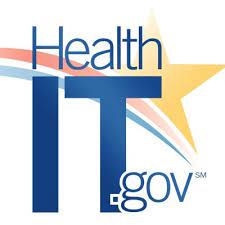Health IT developers
See the following -
Aligning with the Standards Development Community: The New Cycle for Standards Version Advancement Process
 As part of ONC’s ongoing charge to coordinate across federal and industry stakeholders, we determined it was necessary to adjust our Standards Version Advancement Process (SVAP) timeline. Although it may seem like this process has been around for a while, it’s still brand new and we’ve been looking at ways to optimize how the process aligns with other standards development work in the community. The changes we’ve made will help ensure timely publication of implementation specifications central to our cadence for new versions of USCDI.
As part of ONC’s ongoing charge to coordinate across federal and industry stakeholders, we determined it was necessary to adjust our Standards Version Advancement Process (SVAP) timeline. Although it may seem like this process has been around for a while, it’s still brand new and we’ve been looking at ways to optimize how the process aligns with other standards development work in the community. The changes we’ve made will help ensure timely publication of implementation specifications central to our cadence for new versions of USCDI.
- Login to post comments
HHS Announces Synthetic Health Data Challenge Winners
 The U.S. Department of Health and Human Services' (HHS) Office of the National Coordinator for Health Information Technology (ONC) today announced $100,000 in total awards to six winners of the Synthetic Health Data Challenge (Challenge). Synthetic health data (i.e., data that is artificially created to mimic real-world data), is important to researchers, health IT developers, and informaticians, among others, who need data to test new ideas until access to secure and actual clinical data is available.
The U.S. Department of Health and Human Services' (HHS) Office of the National Coordinator for Health Information Technology (ONC) today announced $100,000 in total awards to six winners of the Synthetic Health Data Challenge (Challenge). Synthetic health data (i.e., data that is artificially created to mimic real-world data), is important to researchers, health IT developers, and informaticians, among others, who need data to test new ideas until access to secure and actual clinical data is available.
- Login to post comments
How EHRs Tied Up Physician Time in 2015
As the year draws to a close, we’re taking a look at five of the topics that struck a special chord with the medical community throughout 2015. Burdensome regulations and technology have led physicians to spend considerable time struggling with their electronic health records (EHR). Fortunately, policymakers and health IT developers are starting to take note...
- Login to post comments
How to Prepare for the API Requirements of the Cures Act
 As of April 5, 2021, the U.S. ONC Cures Act Final Rule Compliance Timeframe is in effect. Healthcare providers, Health IT developers, Health Information Exchanges (HIEs), and Health Information Networks (HINs) will have until October 6, 2022, to provide patients with access to all their Electronic Health Information (EHI). There are several requirements that providers, developers, and exchanges must adhere to. Among them are Conditions and Maintenance of Certification requirements for Information Blocking, Communications, and Application Programming Interfaces (APIs). To help you navigate this compliance timeframe, we've asked our J P System's HL7 FHIR® expert, Jay Lyle, what does one need to know about APIs and data standards. Jay has been co-chair of the HL7 Patient Care Work Group for 8 years and is an expert in HL7 data standards development and APIs.
As of April 5, 2021, the U.S. ONC Cures Act Final Rule Compliance Timeframe is in effect. Healthcare providers, Health IT developers, Health Information Exchanges (HIEs), and Health Information Networks (HINs) will have until October 6, 2022, to provide patients with access to all their Electronic Health Information (EHI). There are several requirements that providers, developers, and exchanges must adhere to. Among them are Conditions and Maintenance of Certification requirements for Information Blocking, Communications, and Application Programming Interfaces (APIs). To help you navigate this compliance timeframe, we've asked our J P System's HL7 FHIR® expert, Jay Lyle, what does one need to know about APIs and data standards. Jay has been co-chair of the HL7 Patient Care Work Group for 8 years and is an expert in HL7 data standards development and APIs.
- Login to post comments
New Study Shows Patients Prefer Immediate Access to Test Results and have Unmet Information Needs
 A recent study of 8,000 patients that accessed their test results via an online patient portal found that more than 95% wanted to continue to immediately receive test results through their portal. That percentage stayed at 95% when focused on patients with non-normal results. These findings come amid concerns that the immediate release of test results could lead to patient distress when patients access test results before their physicians could contact them and help to interpret those results...since the ONC information blocking regulations became applicable to health care providers on April 5, 2021, a patient may be able to access test results in parallel to those results’ availability to the ordering clinician.
A recent study of 8,000 patients that accessed their test results via an online patient portal found that more than 95% wanted to continue to immediately receive test results through their portal. That percentage stayed at 95% when focused on patients with non-normal results. These findings come amid concerns that the immediate release of test results could lead to patient distress when patients access test results before their physicians could contact them and help to interpret those results...since the ONC information blocking regulations became applicable to health care providers on April 5, 2021, a patient may be able to access test results in parallel to those results’ availability to the ordering clinician.
- Login to post comments
Standards Alone are not the Answer for Interoperability
 Today I have the honor of presenting a guest blog by David McCallie MD, SVP Medical Informatics, Cerner. He summarizes the collective feeling of the industry about the trajectory of interoperability..."I have been honored to have served on the HIT Standards Committee from its beginning in 2009. As I reach my term limits, I have reflected on what we have all learned over the past six years of helping to define the standards for the certified EHR technology that lies behind the Meaningful Use program...
Today I have the honor of presenting a guest blog by David McCallie MD, SVP Medical Informatics, Cerner. He summarizes the collective feeling of the industry about the trajectory of interoperability..."I have been honored to have served on the HIT Standards Committee from its beginning in 2009. As I reach my term limits, I have reflected on what we have all learned over the past six years of helping to define the standards for the certified EHR technology that lies behind the Meaningful Use program...
- Login to post comments